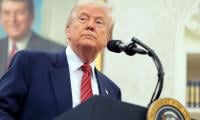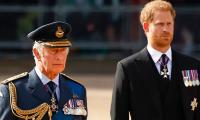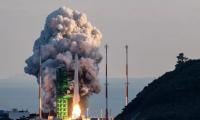Khan’s election goes according to plan, but PML-N protests are sign of things to come
ISLAMABAD: There was no surprise, no upset during the election of Pakistan’s new prime minister. Both contestants, the victorious Imran Khan and runner-up Shahbaz Sharif, secured precisely the number of votes due to them as per the respective numerical strength of their parties and allies.
Khan won with the help of five allies: The Mutahidda Qaumi Movement (MQM), Balochistan National Party (BNP), PML-Q, Awami Muslim League and Jamhoori Watan Party. He clinched four votes more than the minimum required tally of 172. Although, that disproved umpteen claims by PTI spokesman that he would bag 180-plus votes (12 seats of the 342-member house remain vacant), Khan was elected the prime minister in the first round.
The Jamiat Ulema-i-Islam (Fazl) was the one other party to support Shahbaz Sharif’s candidacy. Only the Pakistan People’s Party (PPP) could explain its motivation for abstaining, despite the PML-N’s despite the PML-N’s support for the candidature of Syed Khurshid Shah for the post of speaker.
However, Khan’s celebrations were short-lived. He became the first prime minister in Pakistan’s history to face boisterous agitation on the floor of the National Assembly immediately after his election. It forced him to delay the traditional victory speech. Generally, the opposition behaves itself on such auspicious occasions, but this time round peaking political tensions yielded a noisy affair.
In his maiden address, Prime Minister Khan responded in kind, reiterating his signature slogan of “ruthless accountability”. He vowed to deny a new National Reconciliation Ordinance to any “dacoit”, an obvious allusion to his archrival, the incarcerated and ousted former premier Nawaz Sharif. Such assertions may be well received by the general public, and that was probably what fuelled his bombast.
Indeed, his speech sounded more like that of an opposition leader than that of a newly elected prime minister. His predecessors have tended to balance their inaugural remarks by mixing tough talk with calls for political reconciliation.
But the empowerment of parliament that Khan wants would require him to persuade the powerful opposition to work with his administration. Otherwise, his political and governance reforms agenda would remain unfulfilled. Such collaboration becomes all the more essential when the government – as is the case now – lacks the numerical strength to push legislation through both chambers of parliament.
In Khan’s discourse, however, there was no “thank you” for the allies who made it possible for Khan to be elected as the prime minister. He went straight to “merciless accountability”.
In view of the Pakistan Muslim League-Nawaz (PML-N) hullabaloo, it is entirely possible that Khan was worked up and delivered an extempore speech. PTI front-bencher Shah Mahmood Qureshi even said as much. If true, Khan’s decision was ill-advised. A new prime minister’s inaugural speech to the National Assembly has to be well thought out and prepared in advance so as to spell out the five-year plan of governance of the new chief executive.
Khan aside, the new Speaker of the National Assembly Asad Qaiser and every treasury lawmaker would have to develop thick skins because the PML-N would not relent. In times to come, it is bound to up the ante against what it perceives as a controversial election result. That much was evident from the protracted protest which brought proceedings to a screeching halt. Qaisar was both clueless and helpless to resolve the situation, even after calling an adjournment.
The presence of such a substantial number of opposition PML-N deputies, who are still fuming about the events which transpired in the run up to and during the July 25 general election, virtually assures that the lower house of parliament would be unprecedentedly uproarious for the foreseeable future.
-
 Blake Lively Gushes Over Ryan Reynolds Amid Feud With BFF Taylor Swift
Blake Lively Gushes Over Ryan Reynolds Amid Feud With BFF Taylor Swift -
 Prince William 'furious' At Meghan Markle, Harry
Prince William 'furious' At Meghan Markle, Harry -
 Church Under Investigation After Anti-ICE Protest Interrupts Worship
Church Under Investigation After Anti-ICE Protest Interrupts Worship -
 UK Govt Tightens School Rules On Phones And Social Media
UK Govt Tightens School Rules On Phones And Social Media -
 Fernando Mendoza’s Mom Steals Hearts After Indiana Wins National Championship
Fernando Mendoza’s Mom Steals Hearts After Indiana Wins National Championship -
 'I Don't Care': Trump Shrugs Off Nobel Prize Talk As Greenland Tensions Escalate
'I Don't Care': Trump Shrugs Off Nobel Prize Talk As Greenland Tensions Escalate -
 King Charles Risks Facing Backlash As His Punishment Not Enough For Andrew
King Charles Risks Facing Backlash As His Punishment Not Enough For Andrew -
 Canucks Losing Streak Reaches 11 Games After Islanders Defeat
Canucks Losing Streak Reaches 11 Games After Islanders Defeat -
 'Industry' Creators Reveal Most Common Message They Get From Fans In Finance
'Industry' Creators Reveal Most Common Message They Get From Fans In Finance -
 Alarming: Rising Shark Attacks Force Australia To Close Beaches
Alarming: Rising Shark Attacks Force Australia To Close Beaches -
 Lily Allen Takes Side In Brooklyn, Nicola's Feud With David, Victoria Beckham
Lily Allen Takes Side In Brooklyn, Nicola's Feud With David, Victoria Beckham -
 Northern Lights Glow Across US, UK , Europe After ‘rare’ Solar Storm Hits
Northern Lights Glow Across US, UK , Europe After ‘rare’ Solar Storm Hits -
 Karol G Parts Ways With Beau Feid After Three Years Of Dating
Karol G Parts Ways With Beau Feid After Three Years Of Dating -
 'DWTS' Pro Gleb Savchenko's Mystery Love Interest's Identity Revealed
'DWTS' Pro Gleb Savchenko's Mystery Love Interest's Identity Revealed -
 Meghan Markle’s Father ‘plans To Leak’ Her Letter Despite Privacy Efforts?
Meghan Markle’s Father ‘plans To Leak’ Her Letter Despite Privacy Efforts? -
 Woody Harrelson Reveals Creative Clash With Matthew McConaughey On 'True Detective'
Woody Harrelson Reveals Creative Clash With Matthew McConaughey On 'True Detective'



